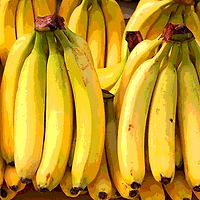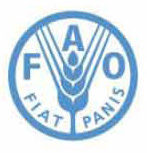About a decade ago, I was a graduate student working on my thesis involving hairy root tobacco cultures in central Mexico. My project was considered standard practice within my area of study in the biotechnological field. I would visit my girlfriend, now my wife, once a month at the ecology institute where she studied, which was located in a city many miles away. I remember that it was very difficult for me to explain to her colleagues that I worked with genetically modified organisms (GMOs), as most of them were against that type of research, even though these originated from an adaptation of a natural process in which a soil bacterium called Agrobacterium rhizogenes would infect a wild plant through the transmission and incorporation of foreign DNA. The final intent was to produce biopesticides with that model to possibly scale up the process in the future with the use of bioreactors. This was my first real exposure to a type of false dichotomy that enables conflicting rhetoric between groups of people that goes beyond academic discourse and into the sphere of public opinion.
There seems to be two schools of thought among scientists who are involved in agriculture: an apparent reductionist approach versus an apparent holistic approach. This divide is also apparent in many other scientific areas. Although it may seem counterintuitive at first, these two views are not mutually exclusive.[1] The first approach includes mostly scientists from particular fields of study such as genetics, biotechnology and molecular biology; whereas the second approach includes mostly scientists from fields such as public health, sociology and ecology. This state of affairs calls for an integration between the social sciences and the natural sciences relating to agriculture, which tend to have a different methodological rigor and are almost completely separated from each other in the aforementioned ideologies.[2]
To provide realistic and effective solutions to the environmental and public health issues that accompany food production, it’s necessary for scientists, politicians, business owners and the public to come together with a synergistic approach, which includes an open mindset to different points of view.[3,4] Food systems should combine sound technologies, such as transgenic crops, plant breeding, precision agriculture, produce washing systems and packaging processes, with sustainable practices, such as intercropping, organic inputs, integrated pest management, equitable farming and water conservation. This approach is often referred to as sustainable intensification, but it’s not well-defined and therefore requires an awareness of scientific consensus, recognition of differing views within those facts, consideration of values and possible trade-offs when applying principles to certain situations. In a more general sense, sustainable intensification is about increasing agricultural output while minimizing the ecological footprint.[2–5]
It is understandable that solutions to problems in agriculture can often generate passionate discussions. However; there are objections in the field of plant biotechnology with regard to transgenic crops where appeals to nature tend to overshadow the progress of sound technology. Not only does the transmission of foreign DNA into plants occur in nature, but the final results of this technology are the same in kind as cross-breeding, especially if mutation breeding is taken into account. The real difference would be in degree, as genetic changes are more targeted and experimentation can only be performed in research facilities with certain equipment where proper adaptations of these types of natural processes can take place.[6–8] In terms of product GMO labeling, the discussion becomes complicated, as sweet potatoes have been found to be naturally transgenic, blurring the demarcation between necessary consumer information and the inherent natural properties of the crop in question with the expected agricultural and handling practices.[6]
A multidisciplinary team is needed to achieve such lofty goals of improving agriculture on different fronts. There is a wealth of information already available for review and enough interest from people that work in various research fields to start a more coordinated approach that can move quickly towards a better utilization of resources that can help shape the future of this world.[4]
Javier Martinez is the food safety manager for Fresh Concepts.
References
1. Payne, SM. 2011. “Reductionistic and Holistic Science.” Infect Immun 79:1401–1404.
2. Rockström, J et al. 2014. “Sustainable Intensification of Agriculture for Human Prosperity and Global Sustainability.” Ambio 46:4–17.
3. ag4impact.org/wp-content/uploads/2013/04/MP_0176_Report_Redesign_2016.pdf.
4. Struik, PC and TW Kuyper. 2014. “Sustainable Intensification to Feed the World: Concepts, Technologies and Trade-Offs.” Curr Opin Environ Sustain 8:VI–VIII.
5. ucfoodsafety.ucdavis.edu/files/157154.pdf.
6. Kyndt, T et al. 2015. “The Genome of Cultivated Sweet Potato Contains Agrobacterium T-DNAs with Expressed Genes: An Example of a Naturally Transgenic Food Crop.” Proc Natl Acad Sci USA 112:5844–5849.
7. Nester, EW. 2015. “Agrobacterium: Nature’s Genetic Engineer.” Front Plant Sci 5:1–16.
8. Oladosu, Y et al. 2016. “Principle and Application of Plant Mutagenesis in Crop Improvement: A Review.” Biotechnol Biotechnol Equip 30:1–16.
Scientific Innovation and Sustainability in Crop Production




